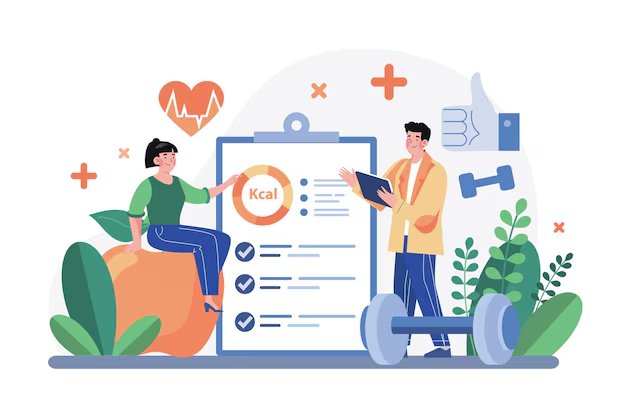Primary Care and Children: Why Pediatric Visits Are Important
Pediatric visits are an integral part of a child’s overall health. Regular checkups ensure early detection of health problems, promote healthy habits, and provide a space for discussing physical and mental well-being

Primary care is an essential aspect of a child's health and well-being, offering a preventive approach to healthcare. Pediatric visits provide a foundation for maintaining the overall health of children from infancy to adolescence. Regular checkups ensure that children are growing and developing properly while also giving parents the opportunity to address any concerns they may have.prime health nj is an example of a healthcare provider that specializes in pediatric care, offering comprehensive services tailored to meet the needs of young patients. These visits help in detecting potential health issues early on and are crucial in preventing long-term problems.
The Role of Primary Care in Pediatric Health
Primary care services for children go beyond treating illnesses. These visits allow healthcare providers to monitor a child's physical and emotional development. Early childhood is a time of rapid growth, and regular pediatric visits ensure that children receive the proper care to support this growth. Whether it’s routine vaccinations or early screenings for developmental issues, pediatric visits play a significant role in promoting healthy habits that last a lifetime.
Importance of Preventive Care in Pediatrics
Preventive care is one of the most important aspects of pediatric visits. Regular checkups ensure that children receive vaccinations on time to protect them from preventable diseases. Preventive care also includes screenings for hearing and vision problems, as well as dental checks. These screenings help in identifying issues early on, when treatment is most effective. By addressing potential concerns early, healthcare providers can prevent serious health issues from developing later in life.
Health Monitoring and Early Detection
Pediatric visits also serve as an opportunity for healthcare providers to track a child’s physical growth and mental development. These visits allow doctors to monitor weight, height, and developmental milestones, helping to ensure that children are growing at a healthy rate. Early detection of issues such as obesity, asthma, or learning disabilities can be crucial for providing timely treatment and intervention. If a child is struggling with developmental milestones, the healthcare provider can offer recommendations or refer the family to specialists for further evaluation.
Building a Strong Relationship with Healthcare Providers
Regular pediatric visits help children build a strong and trusting relationship with their healthcare providers. This relationship is vital because it encourages children to feel comfortable seeking medical care in the future. Having a trusted healthcare provider can reduce anxiety about doctor visits and make it easier for children to open up about their health concerns. Additionally, these visits offer parents the opportunity to ask questions about their child’s health, ensuring they are fully informed about their child’s well-being.
Mental Health and Pediatric Care
Children’s mental health is as important as their physical health. Pediatric visits also provide an opportunity to discuss any mental health concerns. Mental health issues, such as anxiety and depression, can affect children just as they can adults, and identifying these issues early can lead to better treatment outcomes. Regular pediatric checkups ensure that mental health is not overlooked and that children receive the necessary support. Pediatricians are trained to identify early signs of mental health challenges and can help families access the appropriate resources for treatment.
Pediatric Dentistry: The Importance of Oral Health
Dental care is a crucial part of primary care for children. Pediatric dental visits should start early, often as soon as the first tooth appears. These visits help children develop good oral hygiene habits and prevent dental issues such as cavities or gum disease. Regular dental visits also allow healthcare providers to detect problems with a child’s teeth or jaw, which can be addressed before they become more serious. Parents should be proactive about scheduling dental visits as part of their child's overall healthcare routine.
It’s essential to follow your healthcare provider’s instructions after procedures such as tooth extraction.has anyone smoked after tooth extraction? Smoking after dental procedures can disrupt the healing process and increase the risk of complications like infection. Pediatricians often remind parents and children about the importance of following post-procedure instructions to avoid such risks, ensuring that the recovery process is as smooth as possible.
Vaccinations and Disease Prevention
Vaccinations are one of the cornerstones of pediatric care. Regular pediatric visits ensure that children are vaccinated according to the recommended schedule, helping to protect them from serious and sometimes life-threatening diseases. Vaccines prevent diseases like measles, mumps, rubella, and whooping cough, which can have severe consequences for children. Keeping up-to-date with vaccinations is a key component of pediatric healthcare and is essential in maintaining the health of the community.
The Connection Between Nutrition and Pediatric Health
Nutrition plays a crucial role in the health and development of children. Pediatric visits allow healthcare providers to discuss proper nutrition with parents and offer advice on meal planning. A balanced diet is essential for a child’s growth and can prevent a range of health problems, from obesity to vitamin deficiencies. Pediatricians also offer guidance on issues like food allergies or picky eating, ensuring that children receive the nutrition they need to thrive.
Building Healthy Habits Early
One of the most important goals of pediatric visits is to help children establish healthy habits early in life. These habits can last a lifetime and include practices like regular physical activity, good nutrition, and mental health care. Pediatricians provide guidance on developing these habits, setting children up for long-term health and success. Healthy habits formed during childhood can help prevent chronic diseases like heart disease, diabetes, and hypertension later in life.
The Emotional and Social Development of Children
In addition to physical health, pediatric visits focus on a child’s emotional and social development. Pediatricians assess a child’s behavior and social interactions to ensure they are developing appropriately. If there are any concerns, such as difficulty making friends or dealing with emotions, the healthcare provider can help guide the family on how to address these issues. Early intervention can lead to better social skills and emotional resilience as children grow.
Conclusion
Pediatric visits are an integral part of a child’s overall health. Regular checkups ensure early detection of health problems, promote healthy habits, and provide a space for discussing physical and mental well-being. Prime Health NJ offers a comprehensive approach to pediatric care, ensuring children receive the best possible health services. Early visits to the pediatrician can significantly impact a child’s future, providing the foundation for a healthy, happy life.
What's Your Reaction?



















